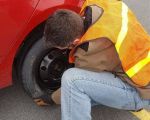- 1-understanding-the-importance-of-car-battery-maintenance
- 2-regular-inspections-and-cleaning
- 3-checking-battery-connections-and-terminals
- 4-monitoring-battery-charge-and-voltage
- 5-protecting-your-battery-from-extreme-temperatures
- 6-safe-practices-when-handling-car-batteries
- 7-when-to-replace-your-car-battery
- 8-real-life-stories-and-rescue-towing-expert-advice
1. Understanding the Importance of Car Battery Maintenance
Maintaining your car battery is crucial for vehicle reliability and longevity. A well-maintained battery ensures your car starts smoothly and powers all electrical components effectively. Neglecting battery care can lead to unexpected breakdowns and costly repairs.
Proper maintenance also extends battery life, saving you money and reducing environmental waste. Understanding the best practices for car battery maintenance empowers drivers to avoid common pitfalls and enjoy peace of mind on the road.

Pick Your Part - Help Yourself
1232 Blinn Ave, Wilmington, CA 90744, USA
2. Regular Inspections and Cleaning
Conduct regular visual inspections of your battery to detect corrosion, leaks, or damage. Corrosion around terminals appears as a white or bluish powder and can hinder electrical connections. Cleaning terminals with a mixture of baking soda and water, followed by a thorough rinse and drying, restores good contact and prevents current loss.
Regular cleaning also prevents acid build-up and prolongs battery efficiency. Remember to wear gloves and safety goggles during cleaning to protect yourself from harmful chemicals.

Pick Your Part - Greer
13054 E Wade Hampton Blvd, Greer, SC 29651, USA
3. Checking Battery Connections and Terminals
Loose or damaged connections can cause intermittent electrical issues or complete failure to start. Ensure battery terminals are tightly secured and free from rust or damage. Use a wrench to tighten connections carefully but avoid over-tightening, which can damage terminals.
If cables are frayed or terminals corroded beyond cleaning, replace them promptly. Good connections optimize power flow and prevent starting problems.
4. Monitoring Battery Charge and Voltage
Regularly check your battery’s charge level and voltage using a multimeter or at service stations. A fully charged car battery typically reads around 12.6 volts or higher. Readings below 12.4 volts may indicate undercharging or a failing battery.
Maintaining an optimal charge prevents deep discharges that damage battery cells. For vehicles used infrequently, consider a battery maintainer or trickle charger to keep the battery healthy.
5. Protecting Your Battery from Extreme Temperatures
Extreme heat and cold both negatively impact battery performance and lifespan. Heat accelerates chemical reactions that degrade battery components, while cold reduces the battery’s ability to provide sufficient power for starting.
Parking in shaded or insulated areas and using battery insulation kits can mitigate temperature effects. In colder climates, regularly running your vehicle helps maintain battery charge and fluid circulation.
6. Safe Practices When Handling Car Batteries
Car batteries contain corrosive acid and can emit explosive gases. Always handle batteries with caution—wear protective gear and avoid smoking or sparks near the battery.
When jump-starting or disconnecting, follow manufacturer guidelines to prevent electrical shorts or injury. Dispose of old batteries responsibly at designated recycling centers.
7. When to Replace Your Car Battery
Most car batteries last between three to five years. Signs you may need a replacement include slow engine crank, dim lights, dashboard warning lights, or frequent jump-starts. Testing at auto shops can confirm battery health.
Replacing your battery proactively prevents inconvenience and keeps your vehicle running reliably.
8. Real-Life Stories and Rescue & Towing Expert Advice
One customer shared how regular maintenance prevented a battery failure before a crucial trip. Cleaning terminals and checking charge levels monthly kept their car reliable even during harsh winters. Another client recounted a sudden battery failure due to neglected corrosion, emphasizing the importance of upkeep.
Rescue & Towing experts recommend routine inspections as part of vehicle care and offer emergency battery replacement services. Their practical advice and reliable support help drivers avoid being stranded and maintain optimal battery performance.
By following these best practices for car battery maintenance, you can enhance your vehicle’s dependability and extend the life of your battery, ensuring worry-free drives every day.





























